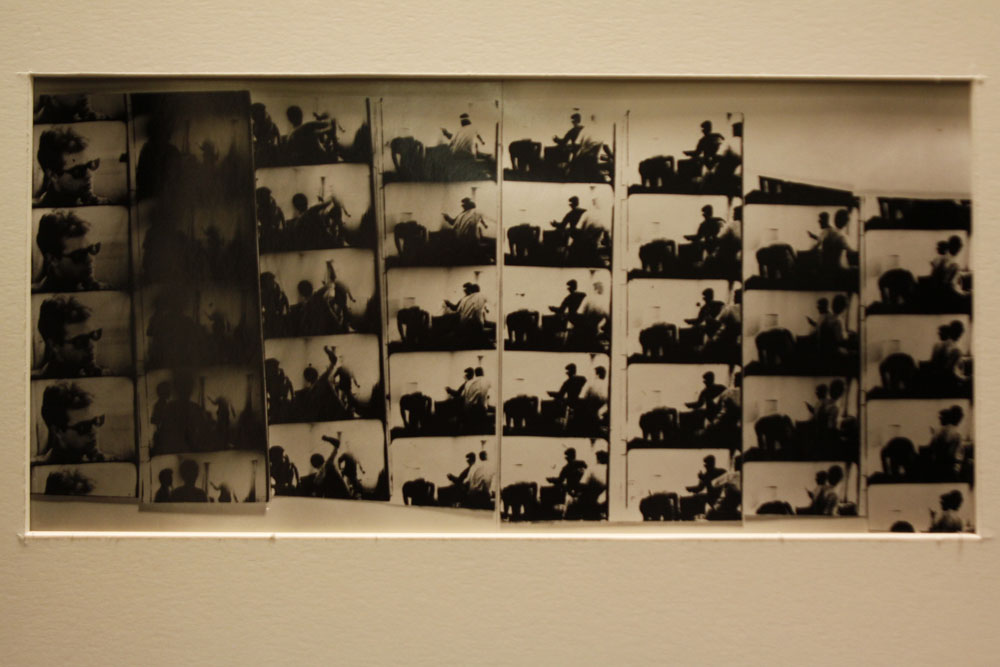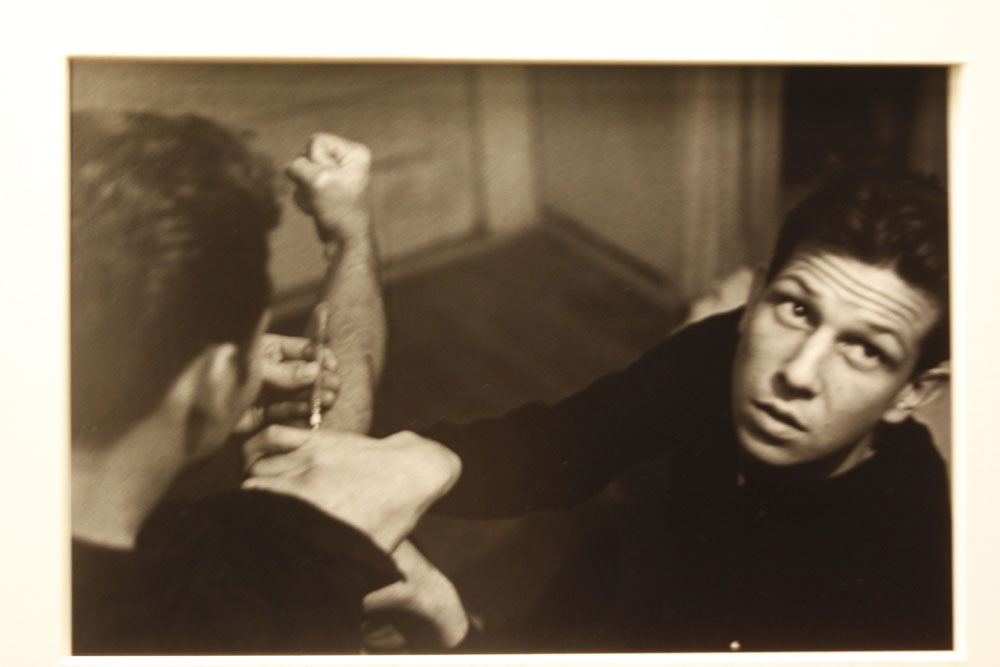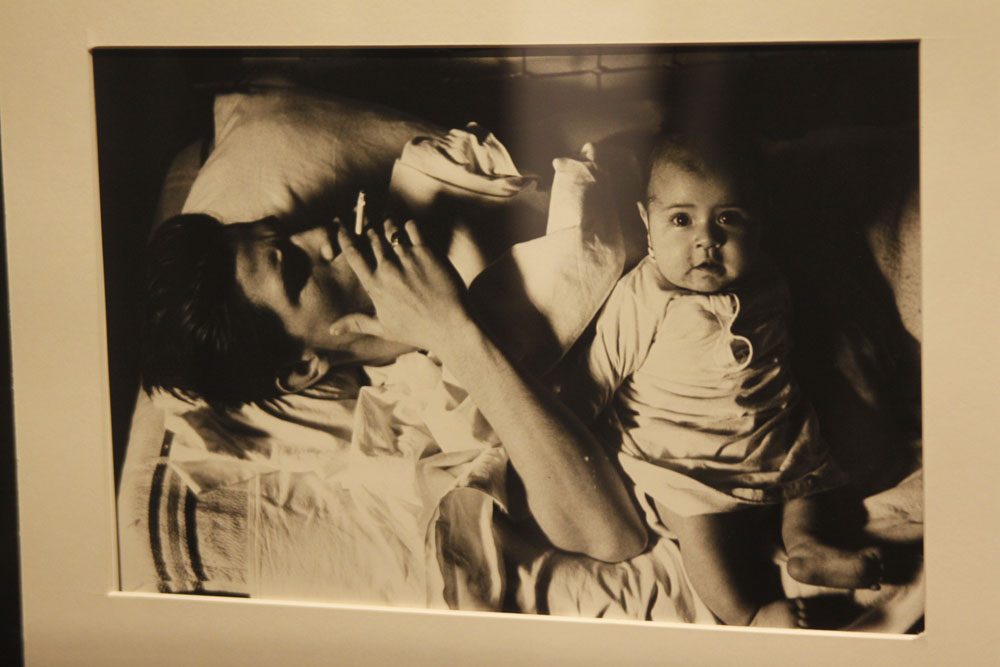
Drexel University’s Rincliffe Gallery, located on the third floor of the main building, is housing “Awareness: Larry Clark’s Tulsa Series” in Fall 2015.
“I was born in Tulsa, Oklahoma, in 1943. When I was 16, I started shooting amphetamine. I shot with my friends every day for three years and then left town, but I’ve gone back through the years. Once the needle goes in, it never comes out,” a quote plastered on the wall of the gallery reads.
The quote is attributed to Larry Clark, an American photographer, film director and writer from Tulsa, Oklahoma. His series, named “Tulsa,” features documentary style photographs and portraits that capture drug abuse in his community from the period of 1963-1971.
On Oct. 28 in the Anthony J. Drexel Picture Gallery, Drexel professor Stephen Lankenau from the School of Public Health, adjunct professor Jeanette Bowles and Nicole Fox, an undergraduate student at the University of Pennsylvania, convened to host Community Perspectives on Drug Use: Reflections on Larry Clark’s Tulsa—an event that aimed to look beyond what Clark’s camera captured.
In Tulsa, Clark’s photographs show drug abuse, violence and sex. They bring up questions and concerns about issues such as the misuse of prescription drugs, drug overdose and diseases that can be transmitted through drug use. Bowles spoke about adolescents and drug use.
“Does drug use deteriorate the body or does our approach to it do that?” he asked those in attendance.

She continued to expand on the subject voicing that when people are adolescents, they are rebellious and want to do whatever they desire. Enforcing abstinence from drugs may only cause teens to want to try them. Public health specialists urge youth away from drug use, but Bowles emphasized that it should be a topic people discuss more often, in case they ever find themselves in the position of using.
“I think what’s really important is to engage folks in conversations about these issues. I think that dialogue can be a very powerful thing,” Bowles said.
Another topic discussed at the event was the major issue of the improper use of syringes among groups of people. Some drug abusers see the sharing syringes to be an intimate act between friends. If one person rejects sharing a syringe, it could be insulting to the one offering it. However, sharing syringes leads to the spread of infectious diseases such as HIV or hepatitis, which can be deadly.
If someone makes a mistake in their adolescent period of life, should that have a hold on them for the rest of their lives? Bowles related the series to the drug abuse she has seen growing up among some of her peers. She saw that some people in her community were greatly affected by their choices, while others were able to turn their lives around. While working on her dissertation, she interviewed people in the Kensington area at a Dunkin’ Donuts. They told her that “they” were not allowed to be there: “they” meaning those who abuse drugs.
“We push them out so we don’t have to see them,” Bowles said. In the discussion, it was mentioned how hard and unaffordable it is for some people to seek recovery, which is why some users avoid it. It is important for resources, such as treatment and information about drug use, be available to people to avoid drug-related problems.

Fox, who used to have drug problems, also spoke on her take at the exhibit.
“There are a lot of things that aren’t shown,” she stated, emphasizing that many of the images Clark presents fail to capture the full experience of drug use and addiction.
She went on to say that she thought that the lack of health education on drugs and their harmful effects could be blamed for many individuals’, especially teens’, addictions.
“The key is education at a young age,” Fox said.
The event concluded around a discussion about resources for drug users, such as treatment and information about drug use are becoming more available. However, the speakers pushed that because there is usually a stigma associated with those who use drugs and the public’s opinion on drug use, it can be harder for users to turn their lives around.

